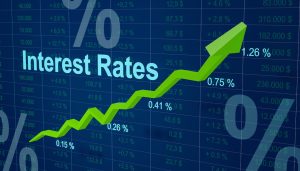Key takeaways
- The Trump administration will likely terminate the SAVE plan and may seek to end other forgiveness plans.
- Student loan borrowers should review their current repayment options to see if they should take action.
- The cost of college is a bipartisan issue, as tuition has increased more than 37 percent in the last 13 years.
As a new administration steps in, many wonder what will happen with student loan forgiveness. While President-elect Donald Trump didn’t speak much about his own plans for student debt relief on the campaign trail, he referred to President Joe Biden’s effort as “a total catastrophe.”
During his presidency, Biden worked to relieve millions of Americans of their student loan burden. And, while he forgave over $175 billion in student debt for nearly five million borrowers, opinions vary about whether it was enough. A review of what the Biden administration did for student loan forgiveness reveals achievements and setbacks that include:
- An increase to Pell Grant maximums that helped lower the cost of college for recipients.
- Updates and improvements to existing forgiveness programs that provided relief to over one million public service workers.
- An attempt at sweeping loan forgiveness of up to $20,000 per eligible borrower that the Supreme Court struck down.
- A scaled-down attempt at providing forgiveness for 25 million borrowers through the Saving On A Valuable Education (SAVE) plan.
While Trump hasn’t directly addressed student debt relief, his past actions and current rhetoric may give some insight. Here’s what experts are predicting and how borrowers can prepare.
Will Trump forgive student loan debt?
“The Trump Administration has indicated that they’re opposed to broad forgiveness and the SAVE plan, so I think we can reasonably expect those efforts to be discontinued,” says Bridget Haile, chief customer officer at Summer, a workplace student loan solution that helps employers provide benefits like student loan retirement matching and tuition assistance.
While Haile hopes the administration maintains existing programs like the income-driven repayment plans and the Public Service Loan Forgiveness (PSLF) program, leading student loans expert Mark Kantrowitz isn’t optimistic.
“He tried to repeal PSLF unsuccessfully during his previous term in office but may try again,” says Kantrowitz. He also predicts that Trump may seek to repeal the borrower defense to repayment program, which forgave student loan debt for borrowers whose schools engaged in fraudulent practices. During Biden’s tenure, he forgave over $100 billion through these two programs.
While the future of existing forgiveness programs remains uncertain, borrowers can expect the new administration to stop defending the SAVE plan in court or rescind it entirely. Based on expert predictions, anyone outside the existing forgiveness programs should expect to repay their student loans as originally intended when they borrowed.
Will Trump create a new repayment plan?
Experts predict that Trump will consolidate the income-driven repayment options into a single, new income-driven repayment plan that is not eligible for forgiveness. The income-driven repayment plans currently offered forgive any remaining loan balance at the end of the repayment term.
According to Bankrate Senior Economic Analyst Mark Hamrick, Trump may see some legal hurdles if he attempts to roll out this plan. “The issue is whether eliminating any loan forgiveness provision in the repayment plan could or would require action by Congress,” he says.
“Just as the courts challenged some of the Biden administration moves, one would imagine that any actions that Trump would undertake, such as to claw back student debt relief, would similarly face challenges in court.”
With such an undertaking, Hamrick and Haile both see this effort as a lower priority for the administration, given its other, higher-impact initiatives. While it may still happen, it likely won’t be right away.
Will Trump abolish the U.S. Department of Education?
While he’s been quiet on student loan forgiveness, Trump has been vocal about his plans for the U.S. Department of Education (ED), vowing to dismantle the department and leave education matters to the states.
The ED is responsible for providing supplemental funding to schools, ensuring equal access to education and maintaining the federal student loan and financial aid portfolio. If the department shuts down, student loan repayment and financial aid would likely shift to other departments, which could cause a great deal of confusion between borrowers and loan servicers.
However, to eliminate the department, Trump would need to do so through legislation from Congress and may need to pass a 60-vote threshold. While experts find that unlikely, it is still possible. Again, with other ambitions seen as a higher priority, the administration may wait to seek this initiative.
Perhaps a more immediate — and foundational — issue that both parties agree on is the cost of higher education. Student debt continues to be extremely high, with the average federal student loan debt balance just over $37,000, according to the Education Data Initiative. The total student loan debt in the U.S. currently stands at $1.75 trillion, and tuition has increased even more with inflation.
Will Trump lower the cost of college?
“[Student loan relief] has been a bit like treating symptoms and not the disease, which is the high cost of higher education and lack of taxpayer support,” says Hamrick. “In previous generations, this helped limit the student liability for the costs of state colleges and universities.”
In less than 15 years, the cost of tuition at a public four-year college has increased more than 36 percent and is about 40 times higher than in 1963. In his three-part plan for student debt relief, Biden attempted to increase Pell Grant maximums, make community college free and hold colleges accountable for rising costs.
In his “Agenda 47,” Trump plans to make higher education more accessible by supporting “the creation of additional, drastically more affordable alternatives to a traditional four-year college degree.”
One alternative is the creation of the American Academy, a free online education institution that will award the equivalent of a bachelor’s degree. According to Trump, his administration will fund the academy by “taxing, fining, and suing excessively large private university endowments.”
How student loan borrowers can prepare for the Trump presidency
Current and future college students should only borrow what they need, with the expectation that they will be solely responsible for paying back the full amount over time. While federal student loan programs may change, you should always explore financial aid and federal loans before private student loans. Once you exhaust federal aid, compare student loan interest rates to find the best, most affordable loan option.
Borrowers currently in repayment should review their repayment options and take any necessary steps if they can enroll in a better plan. Haile recommends enrolling in existing programs immediately, as you could be grandfathered in if plans change.
She warns borrowers in the SAVE plan to expect higher loan payments in 2025 and to budget accordingly. And, since changes are coming with the new administration, Haile recommends verifying your contact information with your loan service so they can keep you updated on any changes.
Refinancing your private student loans to lower your monthly payments may be an option if you can get a better rate and term. When you refinance federal loans, you lose the benefits of various repayment plans and potential forgiveness.
According to Haile, some full-time employees paying back their loans could take advantage of a provision in Secure 2.0, which allows your employer to match your student loan payment as a contribution to your 401k. She encourages borrowers to work with their employers, who may offer other assistance, including student loan guidance and pay-off assistance.
“With forgiveness looking unlikely, these are concrete things that can help,” she says.
Bottom line: Student loan forgiveness is unlikely
Trump has indicated that he does not support student loan forgiveness, and experts predict an end to the initiatives Biden started. Regardless of political actions, the bigger problem that both sides can agree on is that college costs are too high and more affordable approaches are necessary.
How the government can and will solve this issue is yet to be seen. In the meantime, Americans currently taking out or paying off student loans should review their options and make a plan to pay their total loan balance without the help of politicians.
Read the full article here










